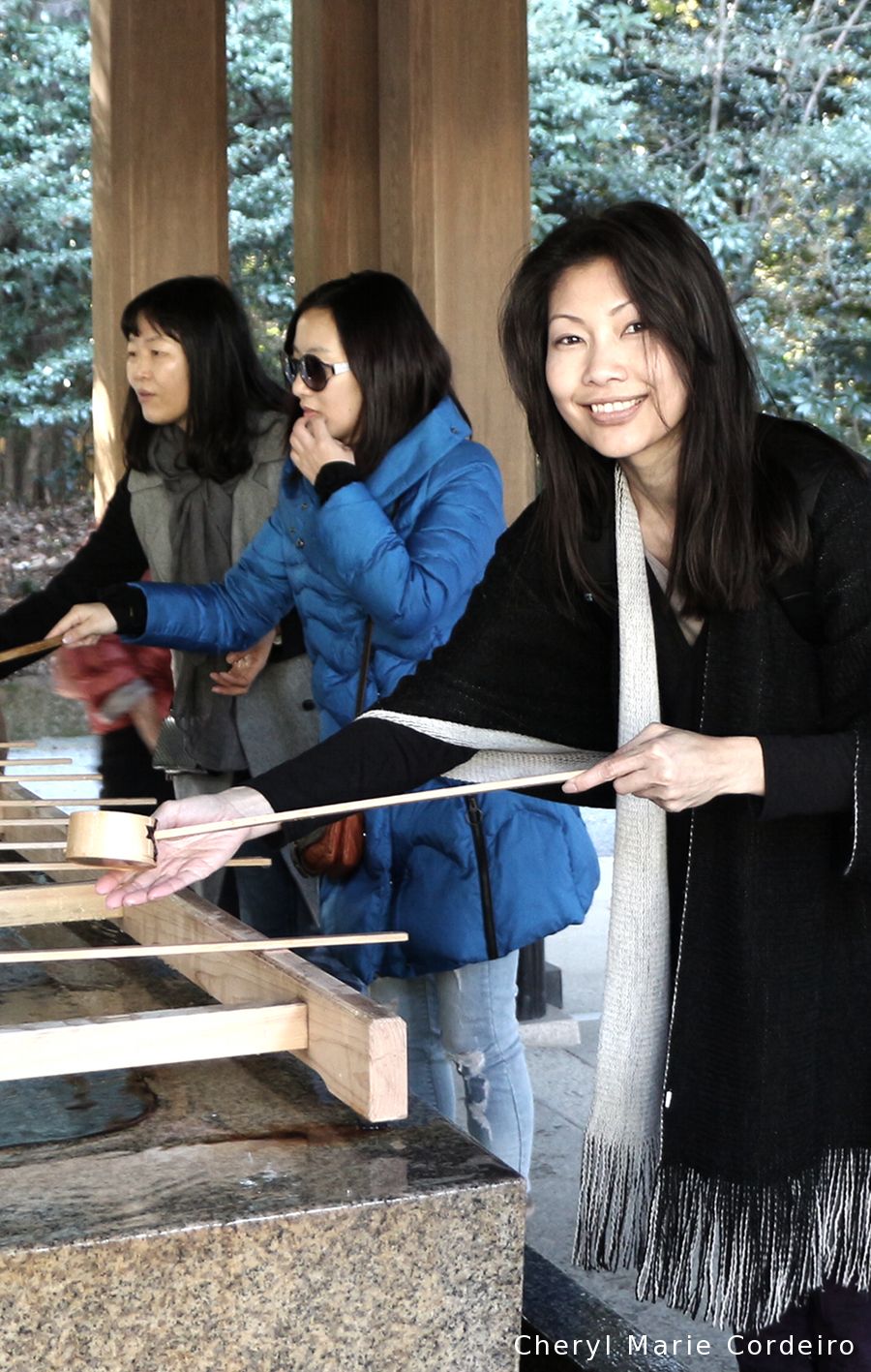Customary cleansing with water before entering the Meiji jingū in Shibuya, Tokyo.
Text & Photo © S Posén, JE Nilsson, CM Cordeiro, Sweden 2015
It was not too long ago that I sat in a group that discussed preferences as to whether or not to research a city / country before visiting. At that time, I had just begun learning about cross-cultural communication, embarking on several university courses on culture studies. I was thus adamant that it was better to read as much as you could about a country of visit prior to landing, else face a myriad of cultural filters and challenges when there. Some in the group were adamant in the opposite camp, believing that part of travelling was indeed to get ‘lost in translation’, the very definition of a travel adventure itself. From that roundtable discussion till today, my preference could be said to have shifted some from all things orchestrated and planned, my favourite saying to the utter frustration of some co-travellers when not having found my way around after hours of wandering in a new city is, “But I’m not lost! I’m right here!”
But this time around, I decided perhaps it was best if I did take a brief sweep of what Tokyo was all about prior to landing, and watched several video blogs on over-twenty things to do in Tokyo. And I’m glad I did, because it helped drastically slash my must-see list in Tokyo, relegating to ‘avoid’ all places with a crowd, which were mostly all places of interest per se. Prime on my list were places of quiet that was not a closed-for-the-day departmental store after sundown when in Tokyo.
I’m happy to say that I found that bit of quiet, at the Meiji jingū in Shibuya, Tokyo.
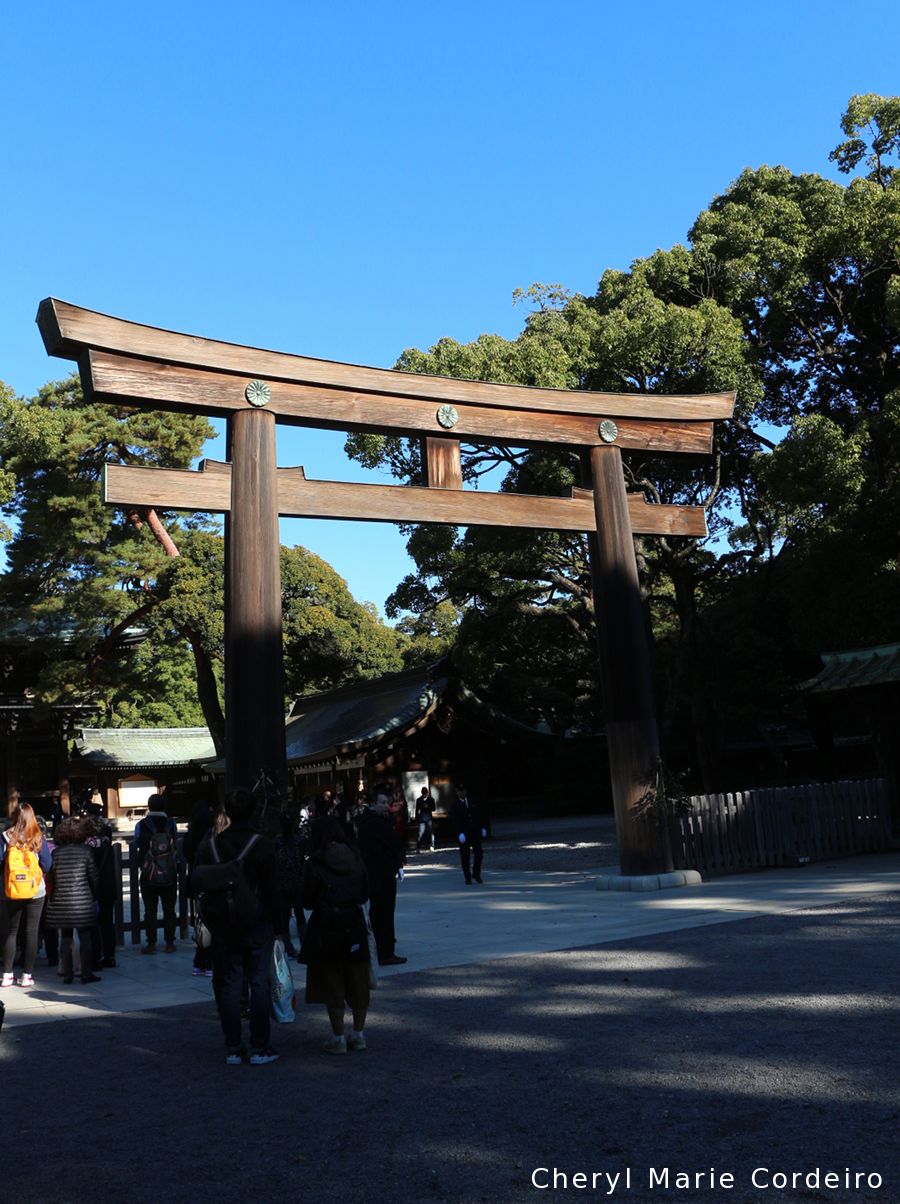
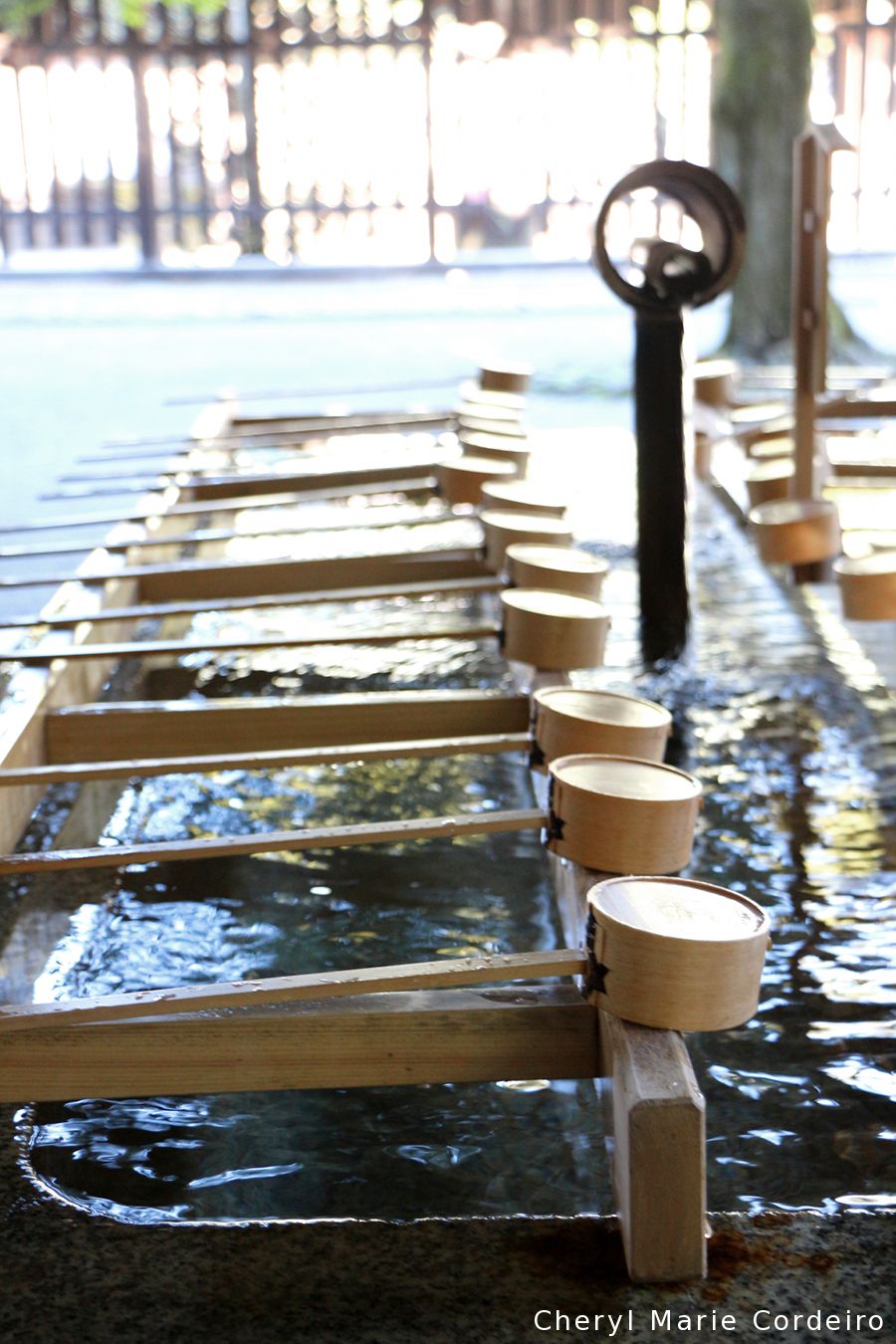
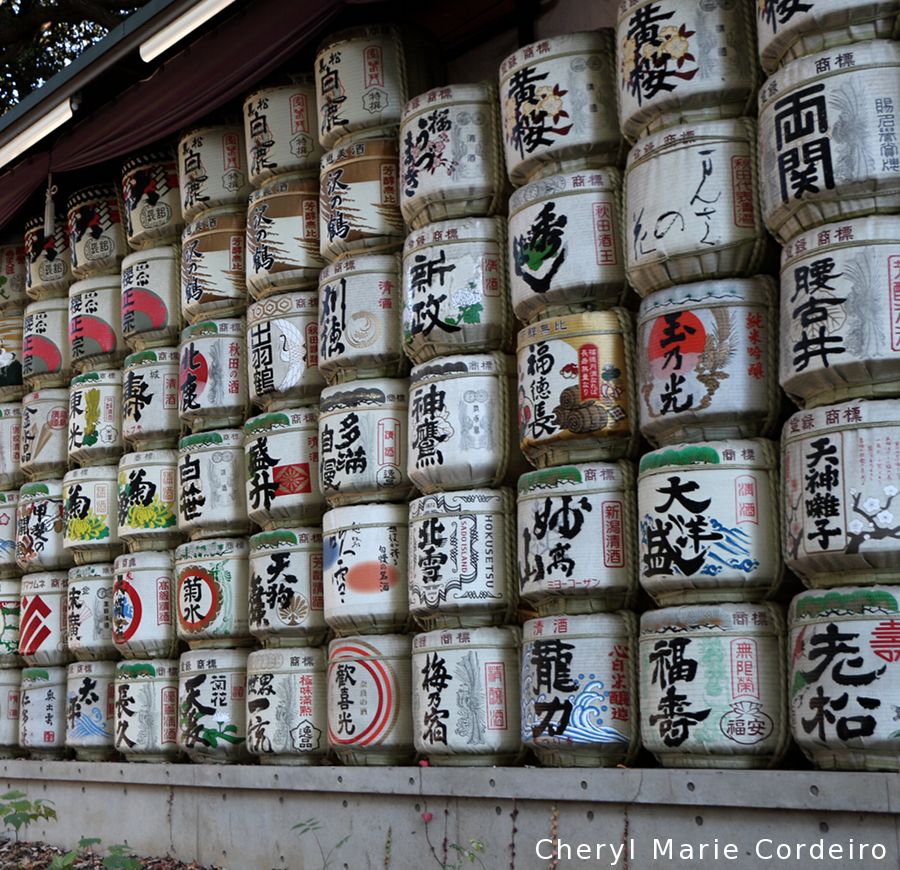
Barrels of sake wrapped in straw, offered annually to the enshrined deities by members of the Meiji Jingu Zenkoku Shuzo Keishinkai (Meiji Jingu Nationwide Sake Brewers Association), in deep honour for the souls of Emperor Meiji and Empress Shoken.
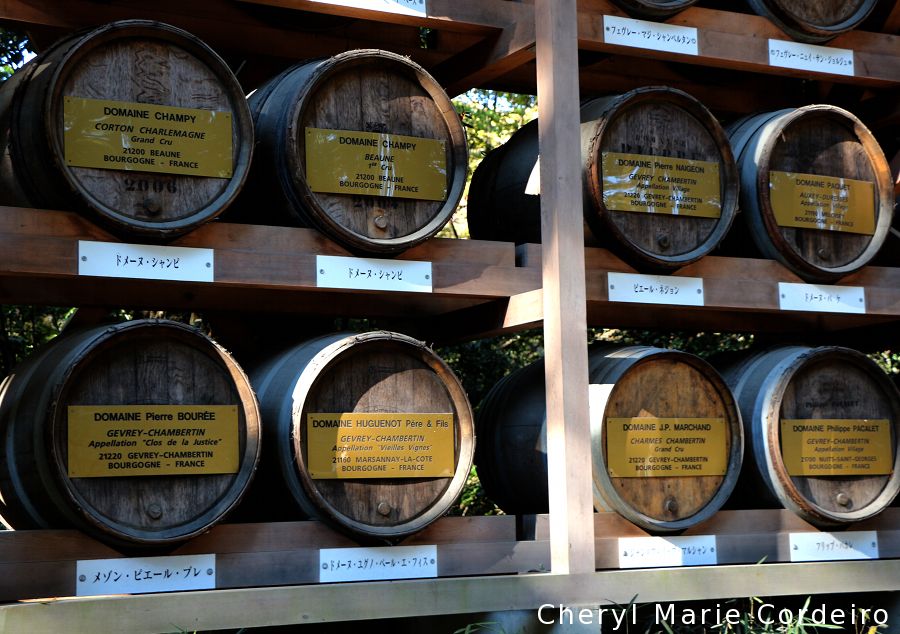
The Meiji period was an enlightened period during which Japan welcomed an interchange of their culture with the west. Emperor Meiji was key in the opening of Japan to western influences, being known to dress in western attire, shearing his top knot and enjoy western cuisine that included wine. These barrels of wine have been offered by the renowned wineries of Bourgogne in France.
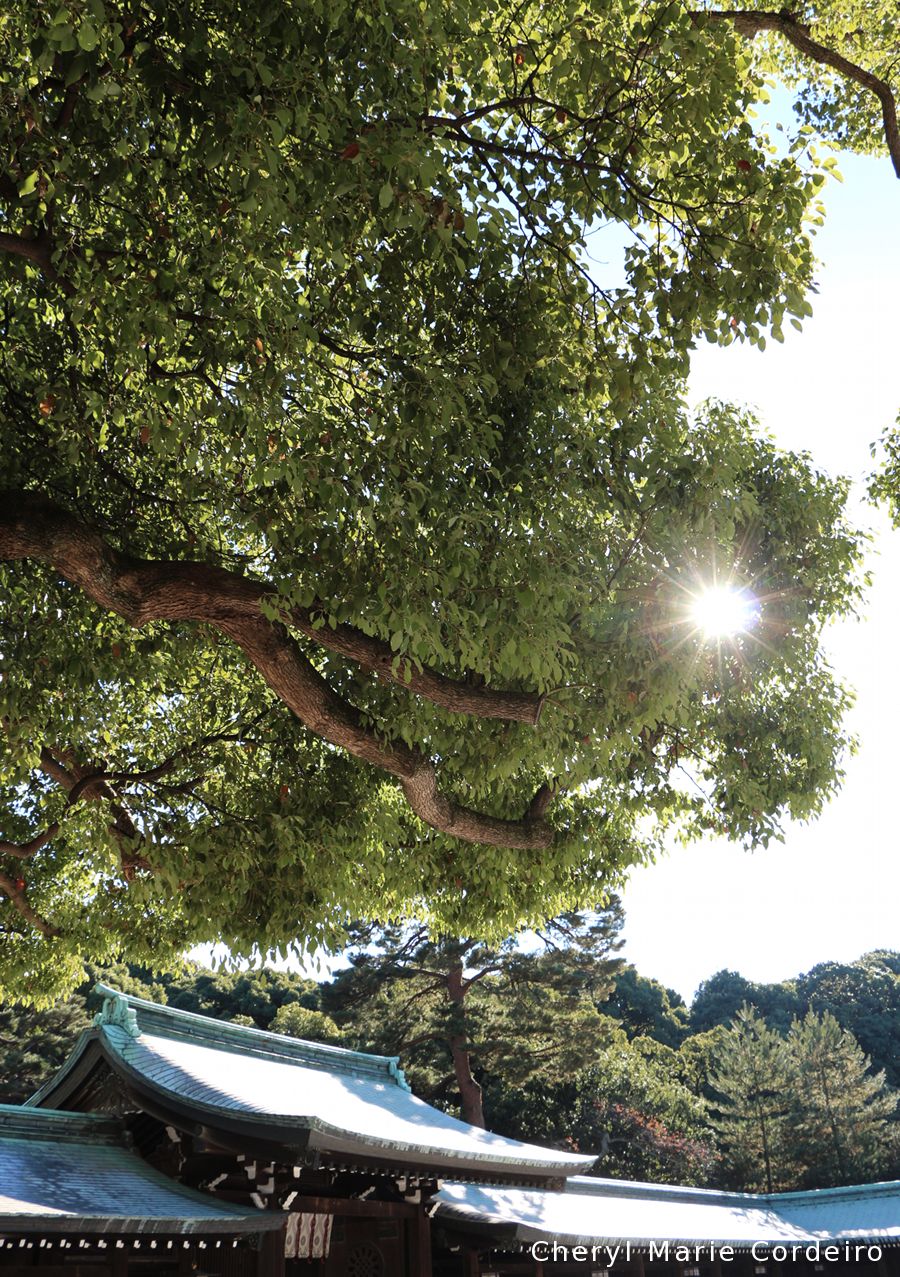
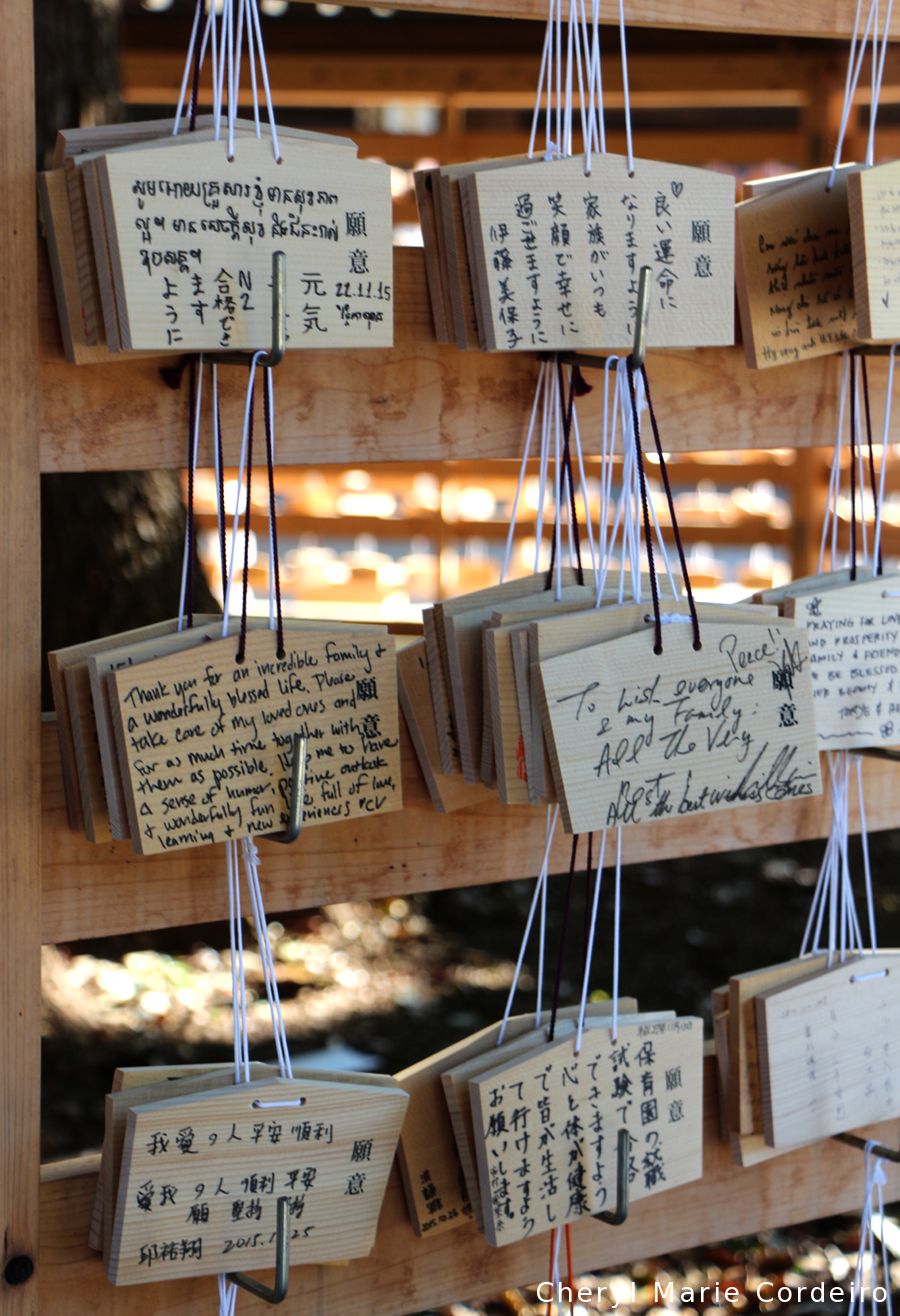
Handwrit prayers on wooden planks.
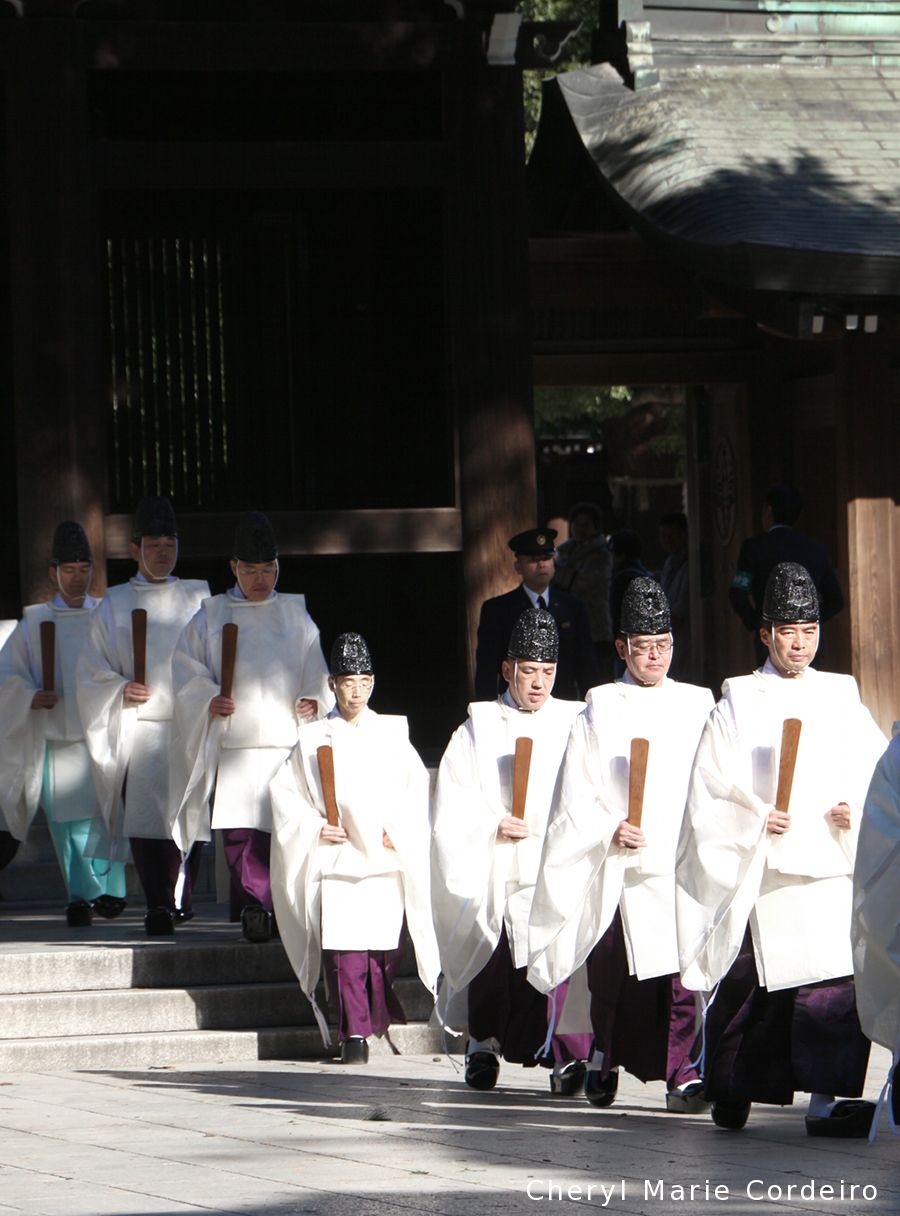
Shinto priests on ceremony.
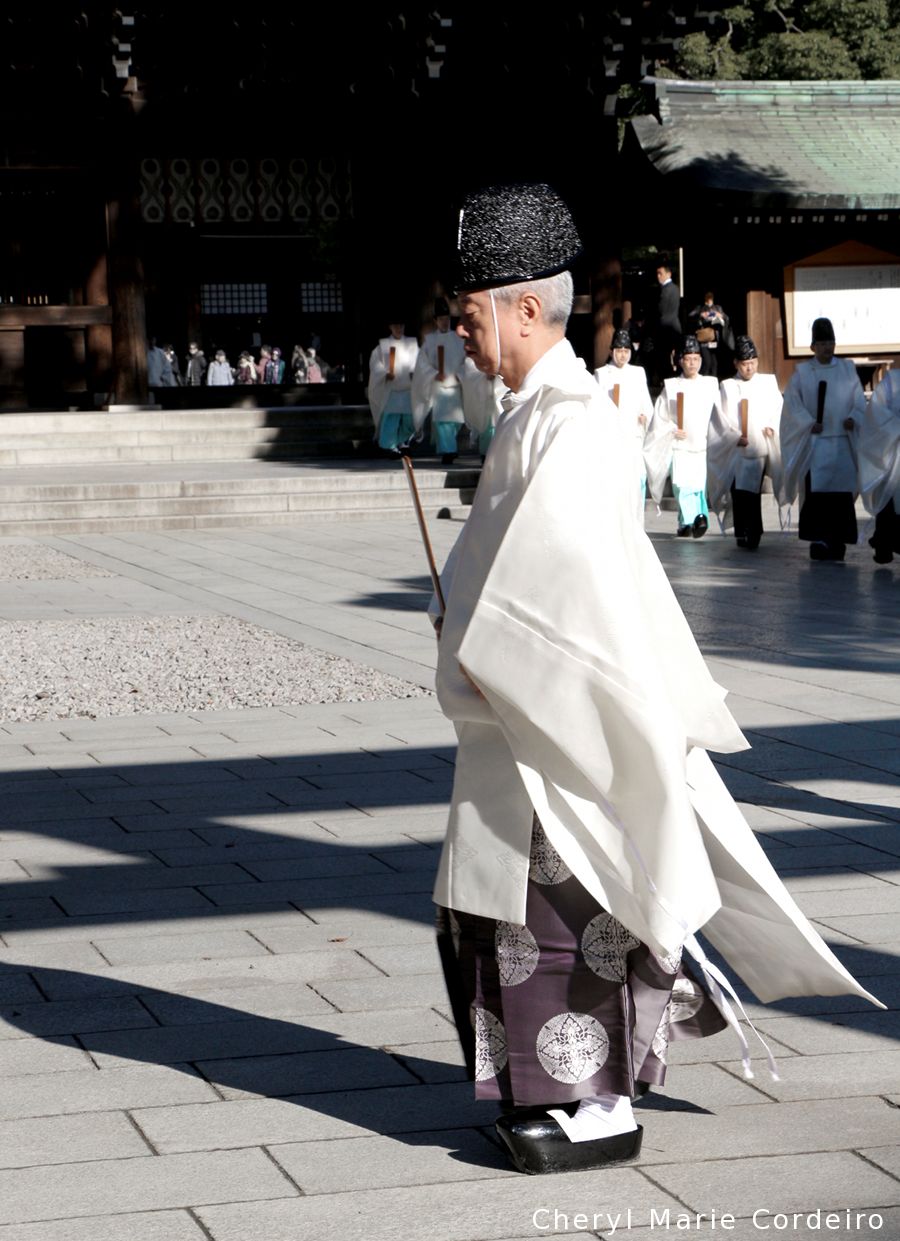
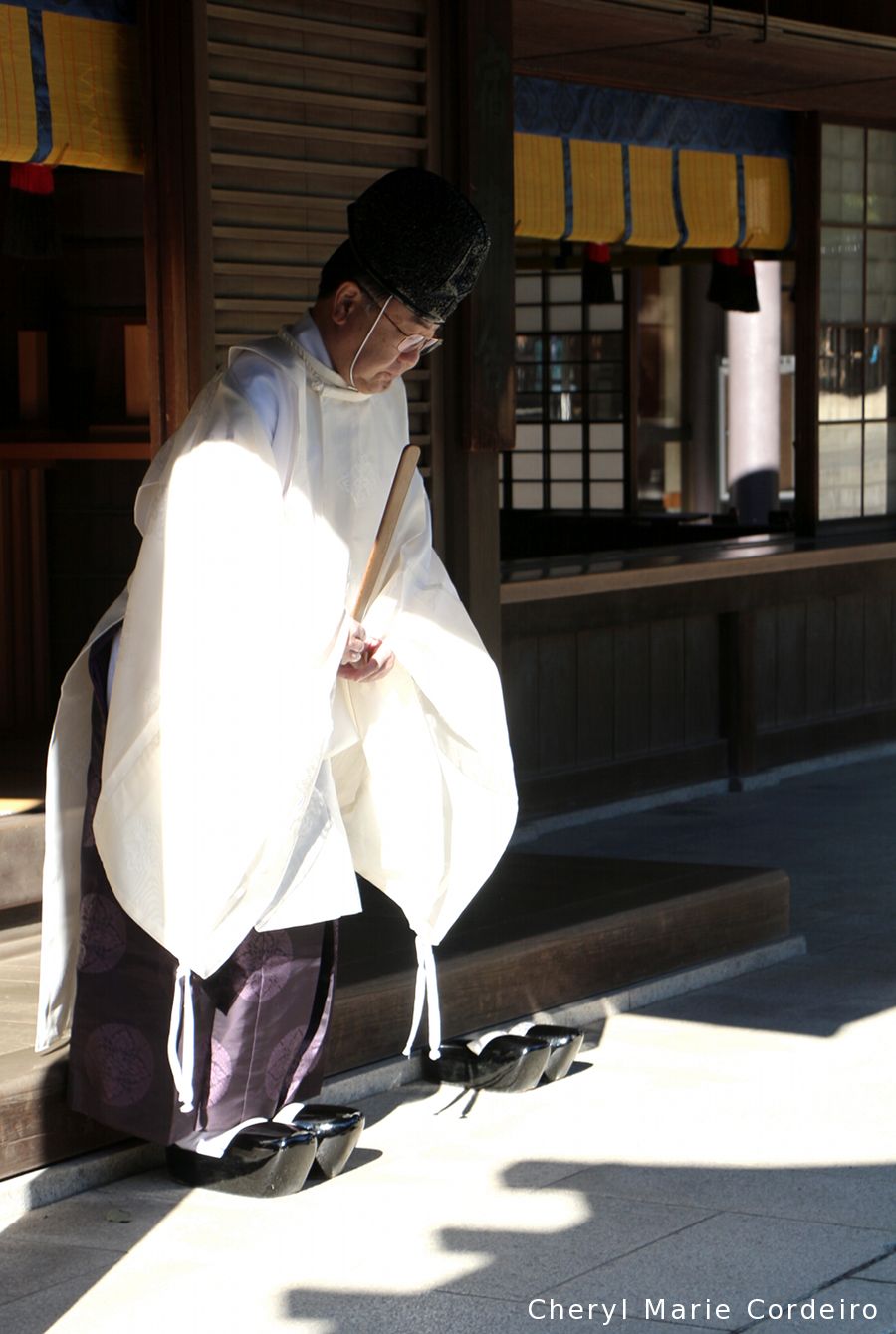
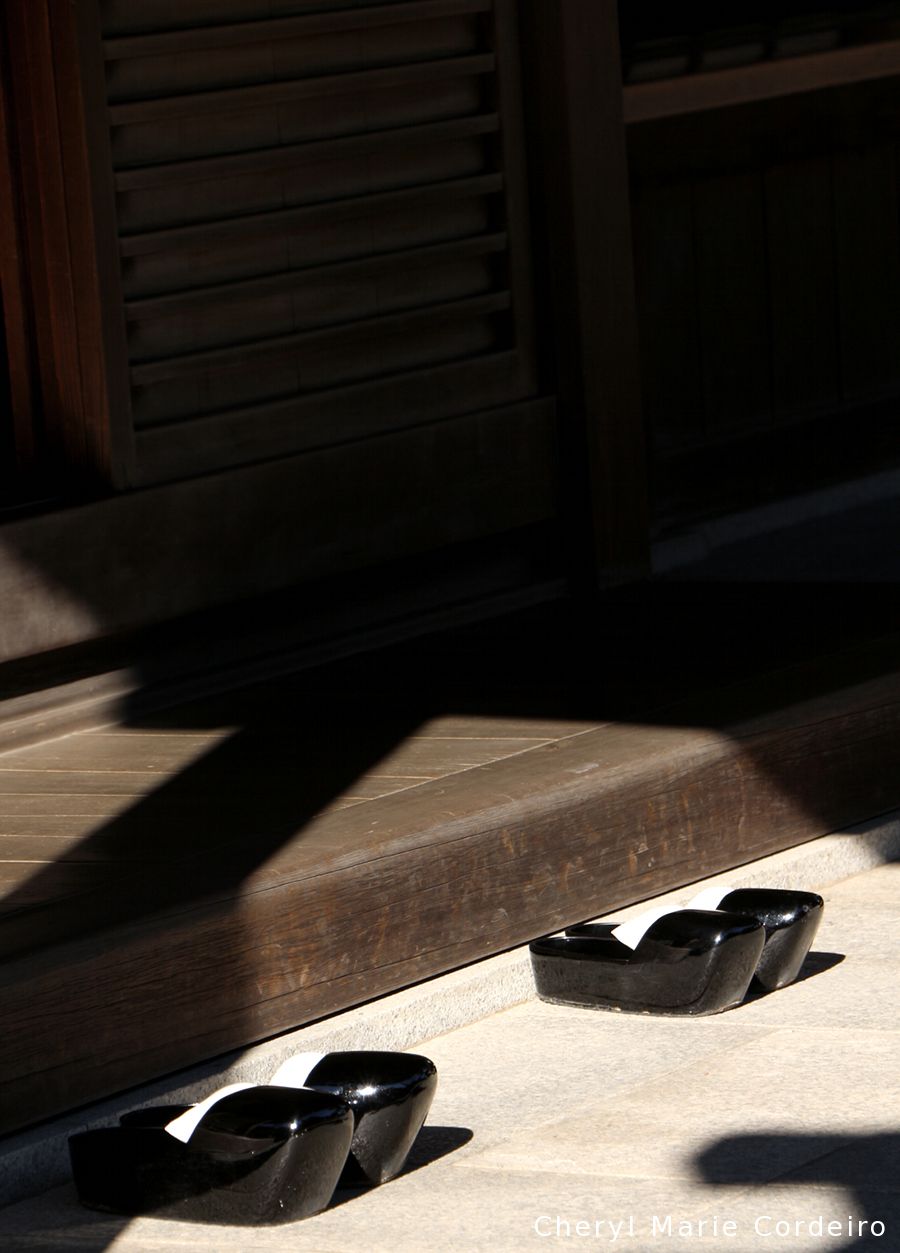
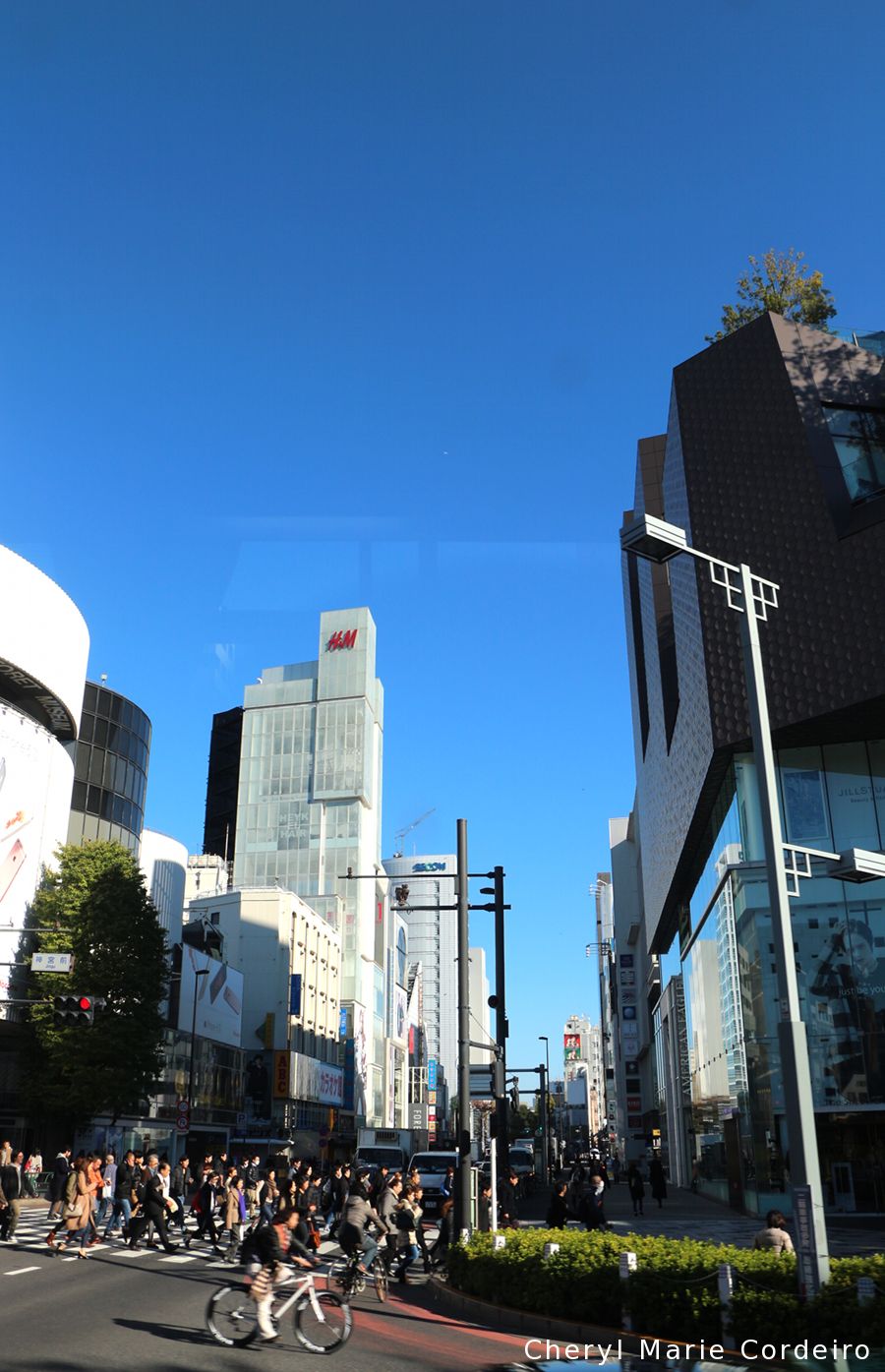
I’ve thus far found Japan as a beautiful, fascinating creature of multiple facets of modernity and tradition, integrated in perfectly fitting seams when past meets present-future.
